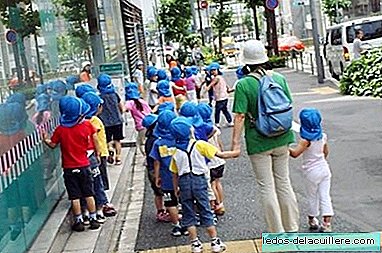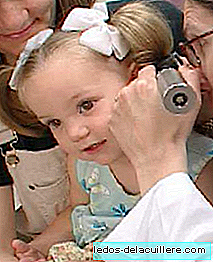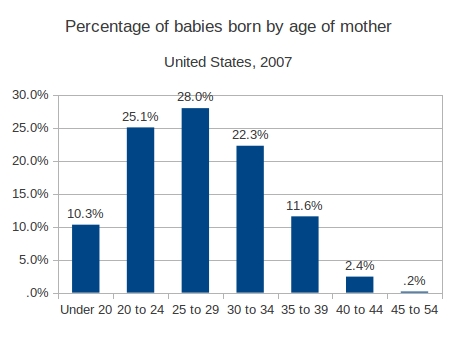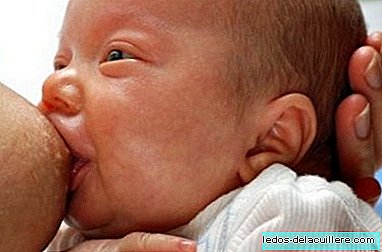
Continuing with the review of the risks and benefits of going to daycare, we focus on this occasion on possible beneficial effects at the psychosocial level and we focus on the main medical risks that certain studies have revealed.
Although we have to point out that the majority of results apply to a certain type of family or refer to a specific model of childcare, that is, they are not generalizable for all children or contexts.
Psychosocial effects of childcare assistance
A systematic review of 1998, which included eight previous trials conducted in the United States, showed that, for a socially disadvantaged population or with a history of prematurity, childcare assistance presented beneficial effects about behavioral development in childhood, school success and economic, labor and social patterns of their adult life.
Another study has recently presented the results of the follow-up from birth to age 15 of a sample of 1364 children, from different social strata and family types, from ten cities in the United States (The NICHD Study of Early Child Care and Youth Development) .
In this study, the effect on the development of childcare assistance in the first four years of life was explored, controlling its quality and other variables in relation to the child's social and family environment. His main finding was that development does not depend on childcare assistance, but on the quality of it.
Children who had attended high-quality daycare centers received higher scores on the scales of cognitive development and greater academic achievement.
A correlation was also found between the time children spent in kindergartens and the level of impulsivity; at a longer time, the likelihood of them being impulsive and adopting risk behaviors in adolescence was greater.
In the review of these studies by the journal "Evidence in Pediatrics", it is highlighted that it is not clear whether the quality of the nursery or the socio-family environment is more decisive in these results. It is also difficult to determine if the findings of this study are applicable to our environment, given the differences in the US school model with other Hispanic countries.

Effects of kindergarten on health
As we advance in the first part of this topic, a recent review published this month in "Evidence of Pediatrics" indicated that children who go to daycare have more infections during the first years and less when they go to school. Let's see more examples that affect the relationship between childcare-child health.
Most of the published studies regarding the health effects of childcare assistance are supported by observational studies.
A recent systematic review to assess the effects of day care in childcare centers on child health, carried out on 84 works from different countries, studied in total data from more than 127,000 children.
After analyzing this large sample, it was shown that childcare assistance, compared to assistance in the homes themselves or by people in the family environment, was related to an increased risk in the first years of life of respiratory infections and acute diarrhea.
The respiratory infections were especially of the upper respiratory tract (common cold, rhinitis, acute otitis media or with effusion), and some of the lower respiratory tract (bronchitis, bronchiolitis, croup, pneumonia, wheezing episodes associated with respiratory infection), with a high percentage of risk increase according to studies of greater methodological rigor. The risk assessment of asthma, in relation to childcare assistance, was quite problematic.
This increased risk seems consistent over time and between different social and geographical environments. In some studies, children treated in small groups in non-family homes (“family day-care”), a widespread practice in other countries, have been analyzed separately: these children showed intermediate risks among those observed in the largest daycare centers ( “Day care center”) and the care group at home or by family environment staff.
Other studies have explored the possibility that exposing children to infectious agents early could protect them against other diseases in childhood or adulthood, but the evidence provided by these studies is weak.
We will finish our review of the risks and benefits of going to daycare with a last post of conclusions that are derived from everything exposed so far.












